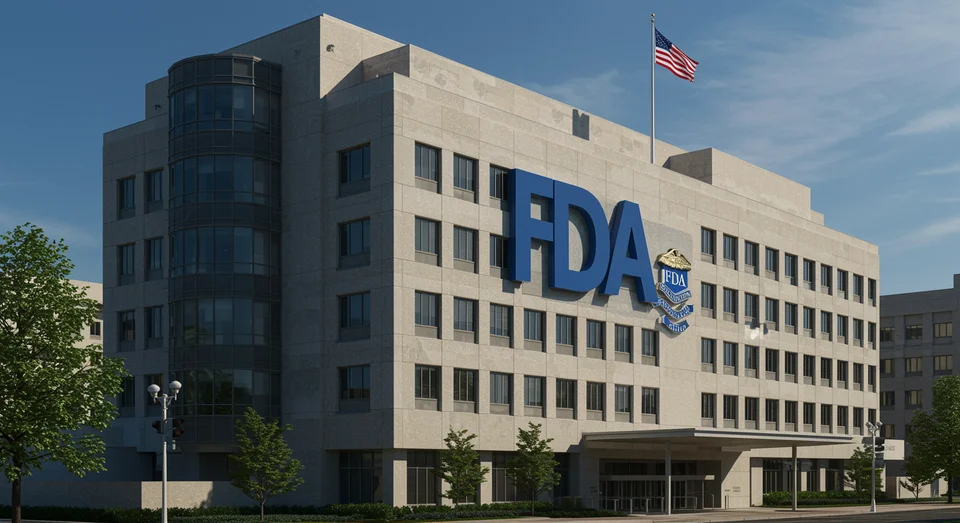FDAs Former Vaccine Chief Criticizes Kennedy Amid U.S. Measles Outbreak and Vaccine Misinformation
259 views
Amid a record-breaking measles outbreak in the United States, Dr. Peter Marks, the former vaccines chief at the Food and Drug Administration (FDA), has issued a scathing critique of Health and Human Services Secretary Robert F. Kennedy Jr. for minimizing the gravity of measles-related deaths among unvaccinated children. Marks lambasted Kennedy’s rhetoric and policies, warning that they could undermine public trust in vaccines and jeopardize the nation’s ability to combat preventable diseases. His remarks come as the U.S. grapples with its highest weekly measles case numbers since 2019 and the tragic deaths of three individuals, including two unvaccinated children in Texas.

A Crisis of Confidence: Measles, Misinformation, and Vaccine Policy Under Fire
Dr. Marks, who until recently helmed the FDA’s vaccine division, has emerged as a vocal critic of Kennedy’s leadership during this precarious moment for public health. The measles outbreak, which has surged to unprecedented levels this year, has reignited concerns about vaccine hesitancy—a phenomenon exacerbated by the very rhetoric Marks accuses Kennedy of perpetuating. Kennedy’s recent remarks comparing U.S. measles statistics to those of European nations, some of which struggle with weaker public health infrastructure, drew sharp rebukes from Marks, who argued that such comparisons obscure the urgency of the American crisis. “Even a single measles death in the United States is one death too many,” Marks said, underscoring the preventable nature of these tragedies.
The stakes of this debate extend beyond measles, touching on broader issues of vaccine policy and public health governance. Kennedy’s administration has reopened inquiries into long-discredited claims linking vaccines to autism—a move Marks has condemned as pseudoscience. The revival of these debunked theories, which have been repeatedly disproven by scientific research, risks sowing confusion and fear among parents already grappling with a deluge of misinformation about vaccines. Marks also flagged ethical concerns surrounding some of the researchers involved in these studies, whose past practices have drawn scrutiny.
Kennedy’s restructuring of federal health agencies has further fueled Marks’s apprehensions. Layoffs at the FDA, coupled with delays in approving Novavax’s COVID-19 vaccine, have raised questions about the administration’s commitment to safeguarding the nation’s food and drug supply. Marks warned that his removal from the agency could signal a broader shift in the FDA’s approach to vaccine oversight, potentially hindering efforts to combat emerging health threats.
The timing of these developments is particularly troubling, given the resurgence of measles—a disease once thought to be on the verge of eradication in the United States. The outbreak has reignited debates over vaccine mandates, which have become increasingly politicized in recent years. Public health experts fear that Kennedy’s policies could embolden anti-vaccine activists and erode hard-won gains in immunization coverage. Marks’s critique of Kennedy’s leadership reflects a broader concern that the politicization of vaccines could have dire consequences for public health.
The implications of this crisis extend beyond the immediate toll of the measles outbreak. Vaccine hesitancy, fueled by misinformation and mistrust, poses a significant threat to efforts to combat other preventable diseases, from influenza to COVID-19. Public health officials have long warned that declining vaccination rates could pave the way for the resurgence of diseases once considered vanquished. The measles outbreak serves as a stark reminder of the fragility of these gains and the importance of sustained vigilance in promoting vaccine uptake.
Marks’s warnings about the FDA’s restructuring under Kennedy also highlight the broader challenges facing federal health agencies. The layoffs and delays in vaccine approvals have raised concerns about the agency’s ability to fulfill its mandate of protecting public health. These issues are compounded by the erosion of public trust in vaccines, which has been fueled by misinformation and politicization. Marks’s ouster from the FDA underscores the precariousness of the agency’s position and the need for strong leadership to navigate these challenges.
At its core, the debate between Marks and Kennedy reflects a clash of values—one rooted in science and public health, the other shaped by skepticism and political ideology. Marks’s unwavering defense of vaccines as a cornerstone of modern medicine stands in stark contrast to Kennedy’s willingness to entertain discredited theories and downplay the risks of vaccine-preventable diseases. This ideological divide has profound implications for the future of public health policy in the United States.
The resurgence of measles in the U.S. is a sobering reminder of the consequences of vaccine hesitancy and misinformation. The deaths of two unvaccinated children in Texas are emblematic of the human toll of this crisis, underscoring the urgency of addressing the root causes of declining immunization rates. Marks’s critique of Kennedy’s leadership serves as a call to action for policymakers, public health officials, and citizens alike to reaffirm their commitment to science and evidence-based decision-making.
As the nation grapples with the fallout of the measles outbreak, the stakes could not be higher. The choices made by leaders like Kennedy will shape the trajectory of public health in the years to come, influencing everything from vaccine uptake to the nation’s ability to respond to emerging health threats. Marks’s warnings about the dangers of vaccine misinformation and the need for robust federal oversight serve as a clarion call to prioritize the health and well-being of all Americans. In the face of these challenges, the importance of science, transparency, and ethical leadership cannot be overstated.
